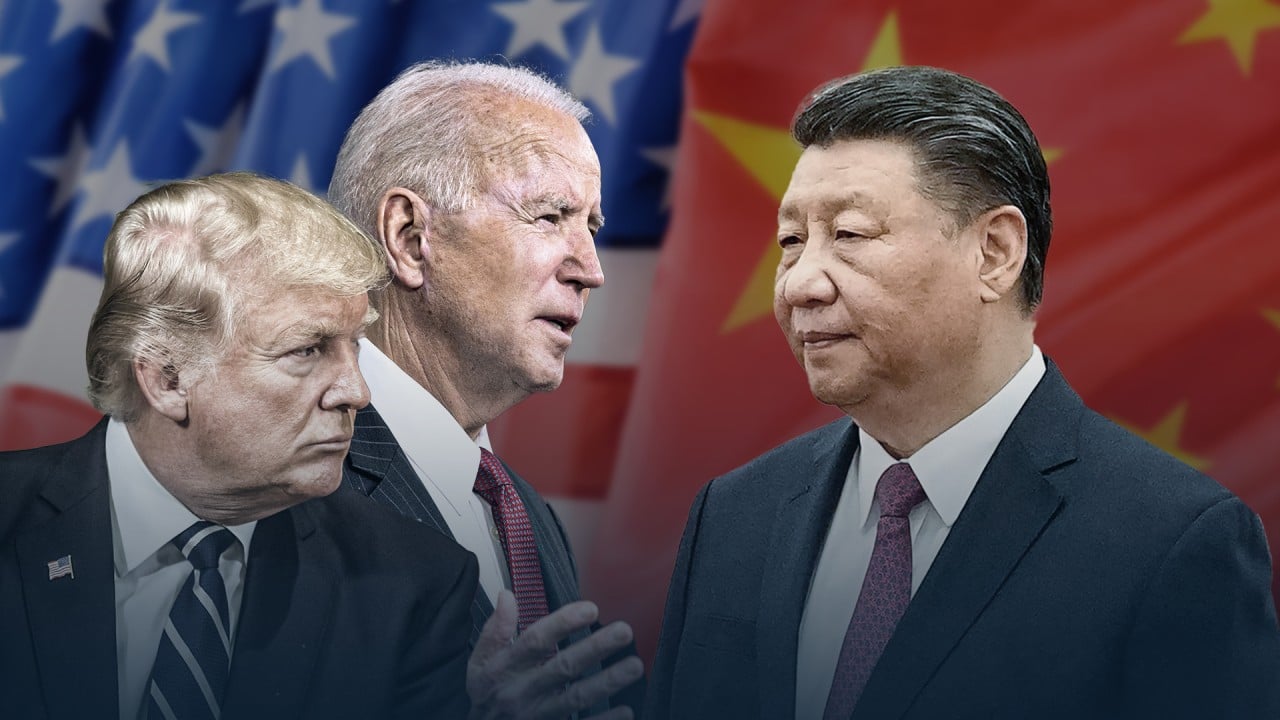The leader of a trade group is rebutting persistent claims that tariffs on Chinese imports have created a surge in domestic manufacturing jobs, and warning against more import duties in the future.
“Before any elected official or appointed officials starts talking about how good tariffs are, they need to look at the results of how these tariffs have been applied to some manufacturers here in America, and how that’s actually cost jobs for American manufacturing workers,” Jay Timmons, president of the National Association of Manufacturers, said on Tuesday in Washington.
The 25 per cent additional tariffs on Chinese imports worth US$300 billion were first imposed in 2018 by then president Donald Trump in an effort to reduce the bilateral trade deficit. Though that goal was not achieved and even led to high prices for American consumers, President Joe Biden has kept most of the Trump-era tariffs intact.
Data from the US Bureau of Labor Statistics showed that despite punitive tariffs on Chinese imports and billions of dollars in subsidies and tax breaks, manufacturers added only 12,000 jobs to the US economy in 2023. Last month, the industry added 23,000 jobs.
Citing the example of American tool and hardware manufacturer Stanley Black & Decker, which has laid off hundreds of workers while blaming tariff-related losses, Timmons described the duties as “not equitable for many American manufacturers”.
Tariffs “created a system where a drill coming in from China that was fully assembled, is less expensive than a drill that’s assembled here because of the component parts that are being tariffed coming in”, he said, calling for the passage of a law to remove tariffs from items that are used to manufacture products in the US.
Since May 2022, the Office of the US Trade Representative has been reviewing the need for and impact of the tariffs.
Timmons said the best way to deal with trade deficit was negotiating a “rules-based enforceable free trade agreement”. But the Biden administration has steered away from traditional trade liberalisation policies, pointing to the supply chain bottlenecks that crippled the global economy during the coronavirus pandemic shutdowns.
US review of US$300 billion in tariffs on China goods cannot be ‘half-hearted’
US review of US$300 billion in tariffs on China goods cannot be ‘half-hearted’
What has worried manufacturers as well as America’s trade allies in recent weeks is Trump’s promise to impose 60 per cent flat tariff on all Chinese imports and 10 per cent tariff on all other imports if he returns to the White House.
Trump is the decided front-runner for the Republican Party’s presidential nomination for the November election.
“This is not just a shot you get to take without … getting returned fire,” Timmons said, adding that such a move could severely hurt the liberalised system of global trade with retaliatory tariffs.
The Mexican ambassador to the US, Esteban Moctezuma Barragan, also attended the conference on Tuesday and spoke about Trump’s threats.
He said such a tariff policy would “hinder the whole relationship” because it was against free trade and the North American region, stressing need for Mexico, Canada and the US to work together.
“We’re not just sharing goods and services, we’re sharing also values,” he said. “And when you start taking down the foundations of free trade, which is [what] put us in this condition to work together, I think that’s not very good.”


